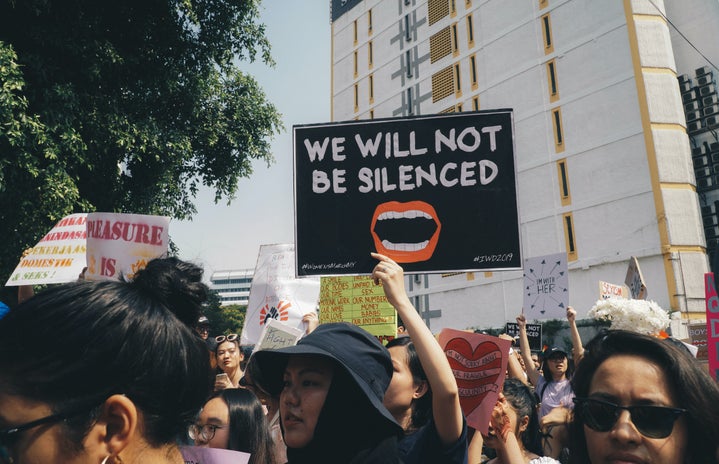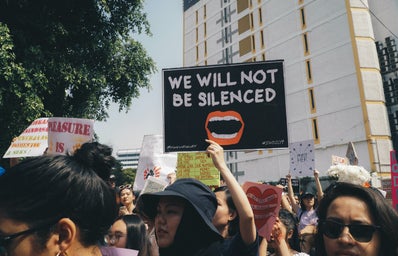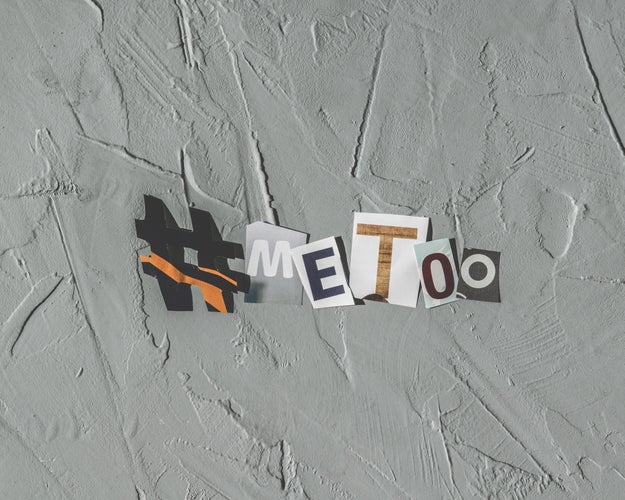TW: Sexual Abuse
On September 27 2021, singer R. Kelly was found guilty on all eight counts of sex trafficking, and one count of racketeering after a month long trial. This followed over 25 years of (known) abuse against women, many trials, two Lifetime documentaries, and countless victims sharing their story concerning their awful encounters with Kelly. For an extremely long time, R. Kelly seemed to be invincible despite the allegations, and was even found not guilty for sexually abusing an underage girl in 2008. Every album of his was successful, many famous artists collaborated well into the 2010s, and songs such as “I Believe I Can Fly” and “Ignition (Remix)” would still play on the radio. However, this wasn’t a huge secret. Certain shows, such as South Park, The Chappelle Show and the Boondocks made fun of R. Kelly, and all of them were some of the most popular episodes of the series. So why did it take so long for him to be held accountable?
Almost all of R. Kelly’s victims were Black women. Some worked for him, some he publicly dated, and some just had the misfortune of meeting him, but most of them were young Black women. His two most infamous scandals included his marriage to then 15-year-old Aaliyah in 1994 and a 14-year-old girl who was the niece of someone who sang backup for him in the early 2000s. For the latter, he did go on trial, but instead of facing repercussions, he was acquitted and released Trapped In The Closet, which went on to win an image award from the NAACP. The NAACP is an organization specifically for the empowerment of Black communities, so the fact that a known abuser of Black women won an award for such an organization felt like a slap in the face. This changed nothing, however. If his highly scrutinized marriage to the underage princess of R&B, Aaliyah, did not result in any legal repercussions, it almost seemed like he would never face jail time. R. Kelly managed to get away with these crimes while he was at the height of his fame, but now everything has changed, and he will be going to prison. This wasn’t something that just sprung out of nowhere. Many journalists and survivors contributed to the long awaited downfall of R. Kelly.
In 2002, Jim DeRogatis was a reporter for a newspaper in Chicago, R. Kelly’s hometown. When DeRogatis received the infamous videotape featuring Kelly sexually abusing a child, he turned it into the police. He was called as one of the main witnesses for the trial against Kelly in 2008, and the defense went as far as to blame DeRogatis for Kelly’s actions. He was a key reporter for the trial, and faced public scrutiny from Chicago fans. DeRogatis would continue to report on this case, and eventually ended up being a journalist for BuzzFeed News.
In 2017, DeRogatis and other BuzzFeed News journalists published a report featuring allegations against R. Kelly from numerous families. This report claimed that R. Kelly was running a sex cult in Chicago, and many women who went to work for him or visit him were going missing. Three families specifically went into detail about the abuse their daughters faced or were facing at the time. This Buzzfeed report led to more and more women speaking out about the abuse that they encountered or witnessed.
The first victims that received publicity concerning the case were Jerhonda Pace and Kitti Jones, both of whom worked for Kelly while they were underage. After reporting their abuse decades prior, both were asked to sign non-disclosure agreements and were silenced using a settlement. Decades later, the BuzzFeed report came out, and both Pace and Jones took the brave step of breaking the non-disclosure agreement. Jones stated that R. Kelly would ask his victims to search for potential new victims, by going into high schools or local parties and asking if they would like to work with R. Kelly. Pace would end up testifying against Kelly in 2021.
In 2018, after many victims were finally being listened to, documentaries were being made, and celebrities were discussing the case, R. Kelly was being blacklisted from stations, and social media was on fire. The Twitter trend, #MuteRKelly, called for the record label RCA to cut ties with Kelly, and for streaming services to take Kelly’s music off their platforms. Nevertheless, Kelly would continue to perform, and fans stuck by his side.
20-year-old Faith Rodgers made headlines when she sued Kelly for knowingly giving her a sexually transmitted disease. She would go on to state that Kelly would mentally, physically and financially abuse and control her.
Around this time, the Time’s Up and #MeToo movements were becoming a global phenomenon. Sexual predators, such as Harvey Weinstein, Louis C.K., Bill Cosby, etc, were being exposed for the heinous crimes they committed, and some faced legal repercussions. In a world where famous men would repeatedly be forgiven for the violent acts that targeted women, somehow, victims were finally being listened to. Yet R. Kelly was still free. The founder of #MeToo, Tarana Burke (a Black woman), was also being overshadowed by white women, such as Alissa Milano and Rose McGowan. Though some women were finally getting justice, Black women continued to have their accomplishments erased and their abusers were still not facing any consequences.
R. Kelly continued to make music, and even tried to profit from the controversy surrounding the allegations against him. He released “I Admit” on SoundCloud. The (awful) 19-minute song featured Kelly saying that none of the claims against him were true, and that he was being framed for these crimes. Despite evidence showing that he was guilty, numerous victims giving statements, and him releasing such a terrible song, Kelly still had fans. These fans would go on to harass multiple victims, including Kelly’s ex-wife, Andrea Lee, who he shares three children with. Andrea Lee and R. Kelly’s brother released a response to the fans and Kelly by remixing “I Admit.”
In 2019, the case’s publicity skyrocketed. For the first few weeks of January, episodes of the six-part documentary special, Surviving R. Kelly, aired on Lifetime. The documentary featured victims, journalists and activists (including Tarana Burke, who was properly credited for founding the #MeToo movement). They also interviewed R. Kelly’s friends, his relatives, his ex employees, families and loved ones of the victims, and even Damon Dash, who was Aaliyah’s partner at the time of her death. It trended on every social media platform, especially on Twitter, which led to the case gaining more and more notoriety. Celebrities, such as Lady Gaga, apologized for working with R. Kelly, and even more victims shared their stories. Survivors of sexual violence unrelated to R. Kelly spoke up about their experiences, people joined together to find the missing victims that were supposedly staying with Kelly, and people went to protests outside of Kelly’s shows.
A month later, Kelly was officially dropped by his record label, and Facebook took down pages he had started with the intention of harassing his victims. A lawyer, Michael Avenatti, stated that he received incriminating evidence, and on February 22, the state of Illinois charged Kelly on 10 counts of sexual abuse, to which he pled not guilty. A judge ordered Kelly to stay away from any woman under the age of 18, and was given a $1 million bond. He was released on bail three days later.
On March 6, 2019, R. Kelly appeared on CBS, where he was interviewed by Gayle King. The interview quickly went viral due to his antics. Kelly cried, screamed, threw multiple fits, all while proclaiming his innocence. Two young women who lived with Kelly and claimed to be in love with him were also interviewed. Their families insist that they have been brainwashed, as they were so young when they met R. Kelly. (One victim, Azriel Clary, would later come out after the sentencing and retract her statements supporting Kelly).
The first few months of 2019 were really the turning point for R. Kelly. He could no longer stay under the radar, and neither could his crimes. In July 2019, he was arrested and indicted in Chicago for multiple counts of sex crimes, kidnapping, child abuse and racketeering. He was denied bail later that year and twice in 2020.
In January 2020, the second edition to Surviving R. Kelly came out, which featured updates on the survivors, the media and Kelly himself. Lifetime also used this as an opportunity to highlight other victims who had not yet come forward or refused to speak a year earlier.
In August 2021, the long awaited trial against R. Kelly had finally began. He plead not guilty to all charges. Victims and many other witnesses gave testimonies. Reportedly, by this time, Kelly was millions of dollars in debt. The jury found him guilty, and he will continue to remain in custody as other trials take place until May 2022. Without the brave survivors stepping forward, and the attention from journalists, documentaries, Twitter and other platforms, the result could have been much different. It shouldn’t have taken this long, but because of Black women pushing for his sentencing and advocating for all women, there is one less celebrity that is taking advantage of others.



